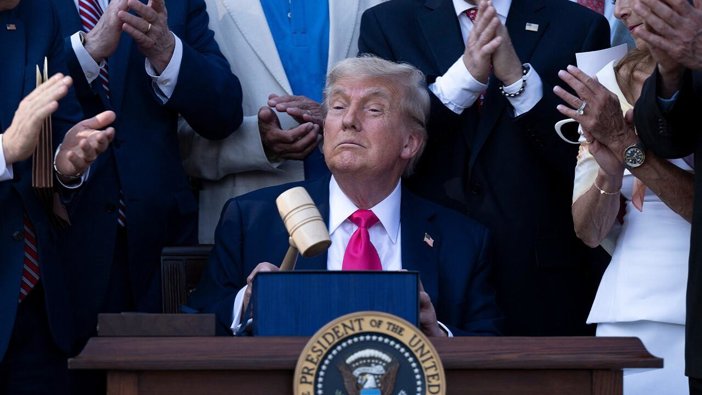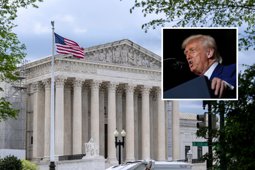
Trump’s Domestic Policy Bill Sparks Election Clash
Trump’s newly signed policy package triggers campaign attacks, with tax cuts and safety net changes fueling partisan clashes.
Partisan Firestorm as Campaigns Target New Domestic Policy Law
The battle over President Donald Trump’s newly signed domestic policy bill is rapidly shifting from Capitol Hill to the campaign trail, with both parties launching aggressive attacks that will define the 2026 midterm elections. The law, branded the “big, beautiful bill” by Trump and his allies, delivers sweeping changes across taxes, health care, immigration, and federal spending.
The Democratic Congressional Campaign Committee (DCCC) announced digital ads targeting 35 Republican-controlled House districts, criticizing GOP lawmakers for supporting the legislation. The ads label the bill the “Big, Ugly Bill” and highlight what Democrats say are cuts to critical social programs. Republican leaders, meanwhile, are pledging to make support for the bill a litmus test for the next election, arguing that every Democrat “voted to hurt working families and protect the status quo.”
Tax Cuts, Medicaid Changes, and a Growing National Debt
At the heart of the new law are several of Trump’s core campaign promises. It makes his signature 2017 tax cuts permanent and eliminates taxes on tips and overtime pay, which, according to the Congressional Budget Office, will reduce federal revenue by nearly $4.4 trillion over the next decade. To offset these costs, the bill enacts the largest cuts to Medicaid and food assistance in American history, introducing stricter work requirements and new eligibility rules.
The measure also provides billions for border security and codifies Trump’s controversial immigration crackdown. While Republicans tout the tax relief as a win for working Americans, the law is projected to surge the national debt by $4 trillion over ten years. House Minority Leader Hakeem Jeffries accused Republicans of “approving the largest cut to Medicaid and food assistance in American history to fund tax breaks for their billionaire donors.”
Republican leaders remain undeterred. NRCC chair Rep. Richard Hudson asserted that House Democrats “rejected common sense” by voting against the bill and vowed to hold them accountable at the ballot box. “House Republicans will be relentless in making this vote the defining issue of 2026,” Hudson said.
Senate Races and Local Impact
The controversy is already shaping key Senate races. In New Hampshire, Democratic Rep. Chris Pappas, running for a critical open seat, warned that 46,000 residents could lose health coverage and that uncompensated care costs would raise premiums statewide. He called the law “a one-party effort” with damaging consequences for vulnerable families. Republican Senate candidate and former Senator Scott Brown defended safety net programs for those in genuine need but argued against benefits for undocumented immigrants.
As campaign season intensifies, both parties are mobilizing resources to frame the new law in starkly different terms. The measure’s impact on taxes, health care, and social programs is set to become a central issue in the fight for control of Congress, with the future of the House and Senate hanging in the balance.






